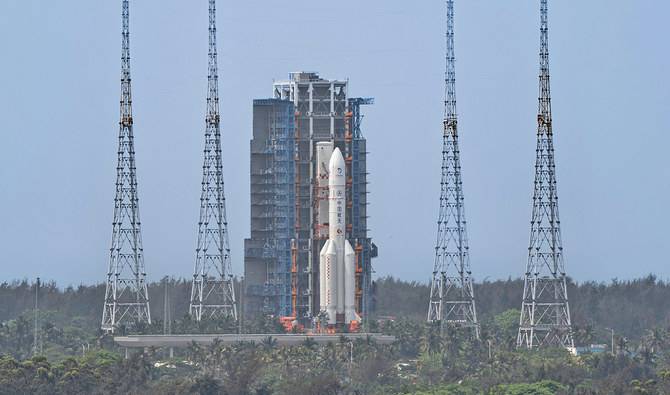iCube Qamar: Pakistan launches its first lunar mission today
Pakistan’s Institute of Space Technology has built ICUBE-Q in collaboration with Shanghai University and SUPARCO

Islamabad: Pakistan is set to launch its first lunar mission on Friday (May 3). Pakistan's Institute of Space Technology (IST) has partnered with China's Shanghai University SJTU and Pakistan's national space agency Suparco to develop the satellite ICUBE-Q, marking a significant milestone in the country's space exploration endeavours.
Chang'e 6 mission
Scheduled for launch aboard China's Chang'e 6 from Hainan, the ICUBE-Q satellite is poised to play a pivotal role in Pakistan's historic lunar mission. Equipped with two optical cameras to image the lunar surface, the ICUBE-Q orbiter has undergone rigorous qualification and testing phases before integration with the Chang'e 6 mission.
Satellite iCube-Q
Chang'e 6, the sixth mission in China's lunar exploration series, is slated to touch down on the moon's far side to collect samples for research upon its return to Earth. Notably, this mission holds added significance for Pakistan as it will also carry the Pakistan CubeSat Satellite iCube-Q, developed by IST.
Around 100 students from Pakistan’s Institute of Space Technology (IST) have been instrumental in the development of the satellite. Set to launch into lunar orbit at 12:50 PM PST on Friday, May 3, 2024, the satellite will take off from the Wenchang space launch site in Hainan, China.
Miniature satellites
CubeSats, characterized by their small size and standardized design, serve as miniature satellites deployed in space for a myriad of purposes. Weighing no more than a few kilograms, these satellites facilitate scientific research, technology development, and educational initiatives in space exploration.
Due to their compact size and relatively low cost, CubeSats offer unparalleled opportunities for universities, research institutions, and commercial entities to engage in space missions and gather valuable data for scientific advancement. Moreover, they serve as platforms for testing new technologies and concepts, fostering collaboration within the global space community.
Collaborative effort
The collaborative efforts between IST, Shanghai University SJTU, and Suparco underscore Pakistan's commitment to advancing its space exploration capabilities and contributing to international scientific endeavours. As the launch of ICUBE-Q alongside Chang'e 6 approaches, anticipation mounts for the groundbreaking achievements that lie ahead in Pakistan's space journey.

